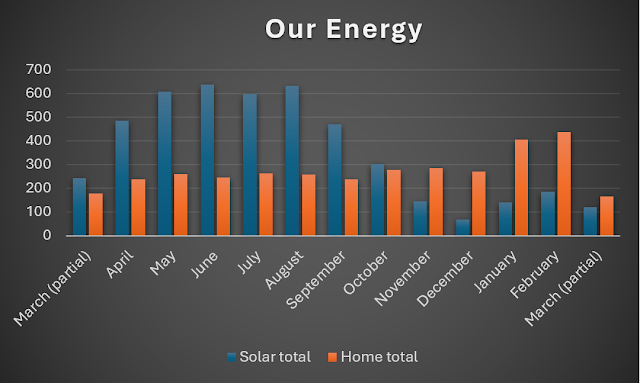I've been very intrigued by a newly introduced tax calculation in Alabama.
A lot of the information I've found about it comes from law firms, who are no doubt explaining it in order to encourage businesses to hire them to make sure that they are compliant.
How does it work?
As well as any federal income taxes, Alabama charges income tax at 2% to 5% on a progressive basis.
Don't rely on my simple explanation here as legal advice, but here goes!
The new law proposes that workers who are performing more than their contracted hours, which in turn are over 40 hours, will not pay the Alabama income tax on that income.
So the workers will only pay federal tax on their overtime work.
They will still pay the Alabama tax on their standard hours, but not on their overtime.
So their tax rate will still be 5% on some of their earnings (say if they work 39 hours), but then drop to 0% for earnings representing overtime hours.
So for someone who works 45 hours they would have 40 hours of earnings at the standard state-tax-rate and 5 hours of earnings that are state-tax-free.
Benefits of the system
The advantage of the system is that workers will face a lower marginal tax rate when offered overtime work than they would do normally.
This can be achieved without lowering the standard rate of tax (5%) which would of course completely erode the tax revenues.
I think from Alabama's perspective the aim is a form of tax competition - set up your business here and your workers will be more likely to accept overtime work.
I expect there is also an expressive element as well - "hard workers shouldn't pay more tax as a result of their striving."
But in economic terms, the aim as I've noted above could be framed more technically in terms of marginal tax rates. Progressive tax rates discourage high earnings, whether that comes from working more hours or from doing higher-paid work.
Disadvantages of the system
It might seem to be a lot of trouble to go through to provide a 5% reduction in marginal tax rates. If the system was applied on federal income tax it would of course be much more impactful, but Alabama can only change its own state tax rules, not those of the US government.
There will be compliance issues in order to assure that the system is not being abused. Firms will have to do extra reporting, and be expected to apply the new tax rates to their workers (and not just claim and pocket the tax refund themselves). Hence why law firms are offering their assistance.
Even though employers take on the administrative burden of income tax, the Alabama state tax administration will presumably have extra costs as well. The tax authorities are going to have check the claims by employers to make sure that they are not fraudulent.
The state needs to know a) How many hours workers are contracted to work and b) how many hours they have actually worked. If they have this information they could apply my hourly averaging system (see below).
Another concern is that this might concentrate work into fewer hands - employers will hire fewer employees and work them longer hours. This seems a strange thing for a state to subsidise. Surely they would want to have more workers employed overall? Presumably the thought is that other firms will set up in Alabama and have their overworked Alabamans provide goods to other states.
Why not go all the way?
This Alabaman system is very interesting to me because it is trying in a very crude way to do the thing that my Hourly Averaging system is doing: to tax people who work more hours at a lower rate than those who work fewer hours.
If the aim is to incentivise work then why not go all the way and impose an hourly average tax calculation?
The Alabama system does not incentivise part-timers to increase their hours. Or incentivise the early-retired to return to work.
My proposal is that everyone should have their lifetime income divided by their lifetime hour credits. These hour credits represent the number of hours the person has worked (or been excused from working if they suffer ill-health). This average is used to determine that person's lifetime tax rate, which is in turn used to work out their tax rate on their most recent portion of income. At each point the person will have paid the correct lifetime amount of tax and received the correct
Such a calculation can be fully progressive - low earners who work long hours at a low wage will have a low tax rate (perhaps even negative with an hourly subsidy). High earners who work short hours (say a part-time lawyer) would have a higher tax rate.
Everyone has an incentive to work more, with one difference.
I proposed a maximum number of hour credits, beyond which point people do not get any further reduction in their tax rate. This is an optional part of the system, but I proposed it for a few reasons:
- To avoid incentivising overwork
- To reduce the potential for fraud
- To avoid incentivising the concentration of work within each enterprise. A long-hours option for some and few/no work options for others.
The maximum hours proposal is not key to the system but I think it is a good idea. Alabama are sort of doing the opposite here - Alabama are only applying the hourly tax reduction ABOVE a high threshold.
Will 2024 be the year Hourly Taxation starts to gain traction?
I will be watching the Alabama system with interest!
If a Conservative state can make hourly taxing work then I don't see why my progressive version cannot be seriously considered.
The potential administrative issues are the big barrier to the implementation of my hourly tax proposal (along with ideological opposition from free marketeers and top-down-statist socialists, and concern about international tax competition).
Will 2024 will be the year in which hourly taxation finally gets taken seriously? I certainly hope so!




